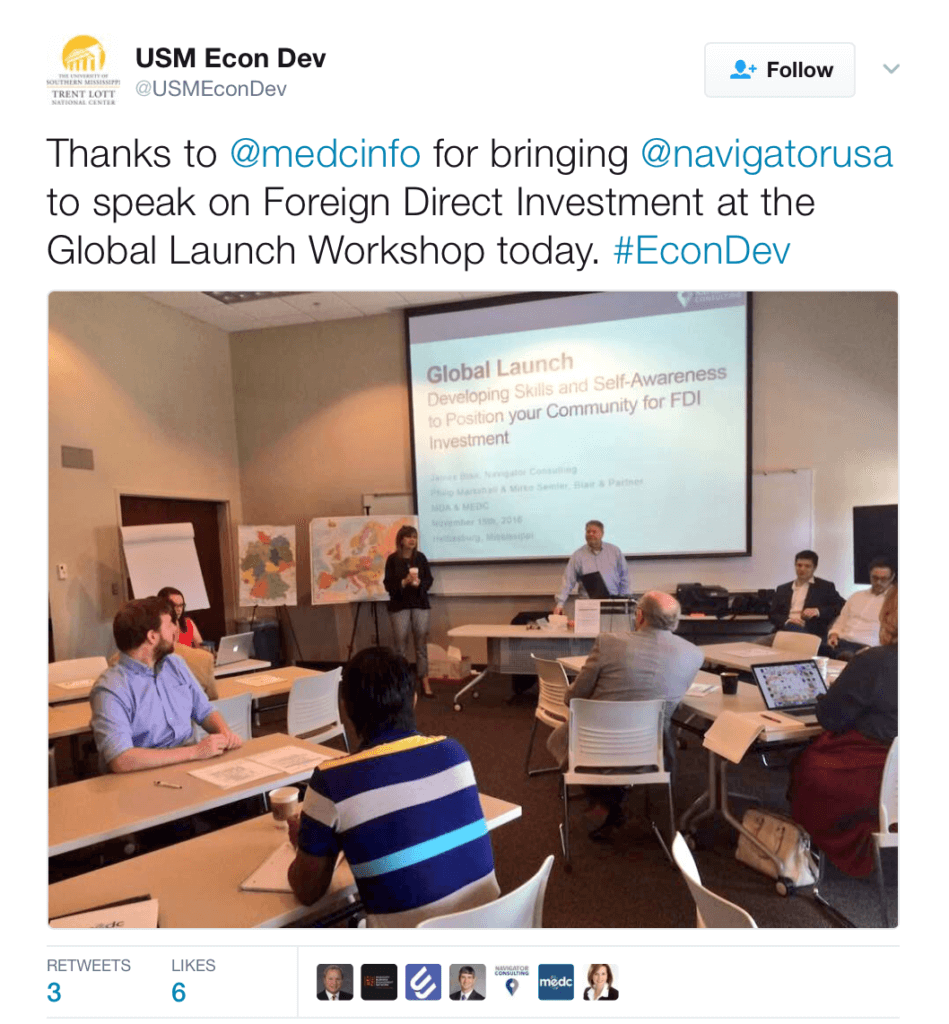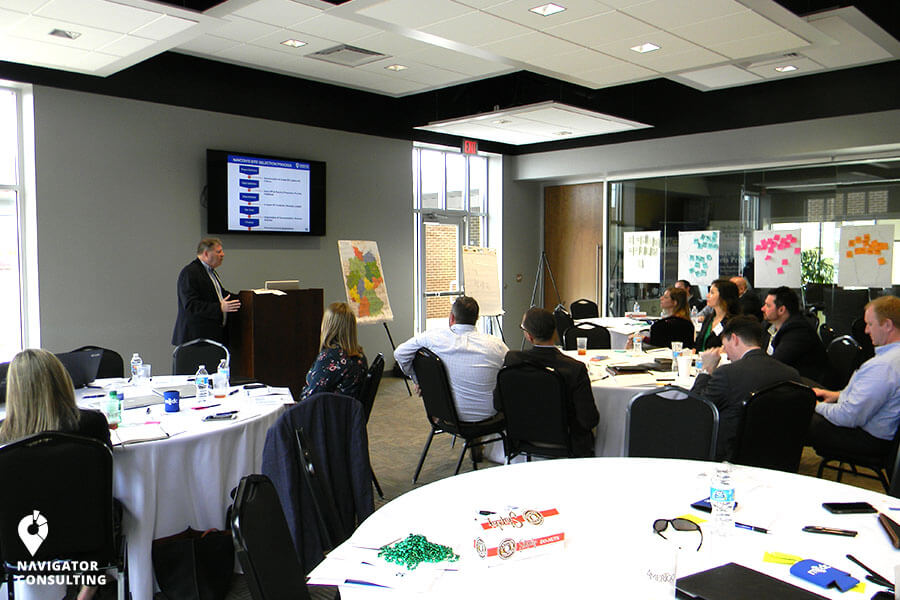Enabling Mississippi Communities to Better Compete for Global FDI
Global Launch
Competition for foreign direct investment (FDI) in manufacturing among U.S. states and communities is fierce. In 2014 alone, $420.7 billion of overseas investment flooded into the USA – $12.6 billion invested in establishing and expanding businesses – making the United States one of the top investment locations worldwide. No doubt, securing pieces of that pie is at the top of any political and economic development agenda.
The Importance of FDI for Economic Development
In Mississippi, foreign-owned firms account for some 34.000 jobs with investments of over $6.5 billion since 2003 for establishing or expanding economic activity. Recent figures from the U.S. Bureau of Economic Analysis show the impact of such jobs to local communities through qualified labor and high pay: Annual salaries in foreign-owned businesses averaged over $82,000 in 2014. FDI, especially from Europe, is typically paired with sophisticated and advanced technology; oftentimes niche products that have proven to be successful in home markets and that require a highly skilled workforce. Communities that successfully attract FDI not only benefit from well-paid jobs in growth industries that tend to stay long-term, but also from intercultural diversity as well as localized transfer of innovation and know-how.
 Overcoming Challenges
Overcoming Challenges
European companies have traditionally favored East Coast investment locations or the proximity to major cities with hub airports. While growing aerospace, automotive and advanced manufacturing clusters in the country’s heartland will attract increasing attention for FDI projects, states like Mississippi will want to position themselves as strategic locations within the growing NAFTA market and develop a unique message for international investors. Telling this story starts at the local level. While there are location factors that can hardly be influenced, other assets certainly can. Site selection consultants stress the importance of experienced and flexible local leadership and EDO’s that are capable of adjusting to cultural differences posed by international clients. In the course of accompanying its international clients to communities across the country, not just in Mississippi, Navigator Consulting has identified shortcomings and opportunities for economic developers to shape and align their message and to increase their awareness and knowledge of how to work effectively with international clients.
Community Workshops – Grassroots Approach
In a bottom-up attempt to sustainably strengthen Mississippi’s position for FDI investment, the Mississippi Development Authority (MDA), in close cooperation with generous sponsors like Mississippi Power, TVA, Entergy and South Mississippi Electric, asked Navigator Consulting and its German affiliate Blair & Partner, to develop a program designed for Mississippi communities to expand understanding of these types of projects and the decision-makers involved.
In total four sessions in Canton, Oxford, Hattiesburg and Jackson were held and reached more than 75 participants from 21 counties.
Site Selection Behind the Scenes
The half-day events were structured around the question of how to work international projects more successfully and called on the audience for active participation in interactive sessions. Thematically, the format included two main blocks:
“Sharpening your tools” addressed questions specifically related to the site selection process and the ability of a community to facilitate the process with reliable and good information and materials about its local assets and product. This is the internal view: What do I need to know about my community and sites and how do I best convey the message to project stakeholders? The consultants granted an in-depth look into RFI procedures and selection criteria as well as best practices for site support materials.
“Preparing for success” dealt with questions related to an international client’s decision-making process and the need for local leadership to adjust to intercultural settings. This brings in the external view: Who is the prospect and how will he or she view my community and local assets? Here the program focused on the European business mindset, with a specific emphasis on Germany, France and Japan. How does business culture in these countries differ in terms of education, corporate culture, work-life-balance, environmental consciousness, trade unions and others? It also pursues the question of the definition, meaning and implications of the German ‘Mittelstand’.
Intercultural Competence for the Win
Mr. Blair and his European team members engaged the audience in a presentation and discussion-based workshop where the EDO’s got the chance to improve their cultural awareness and acquired a better understanding of European executives’ frame of mind when leading a site selection process for their company. The program included the discussion of theoretical and academic thought models such as the “cultural iceberg” and “cultural dimensions” theory. But it more importantly dealt with the everyday cultural clash between Americans and Europeans as each builds on its own cultural history.
The workshop yielded valuable insights and examples as to how Europeans think and process information – basically “what makes them tick” – often based on different underlying values and moral principles. Advancing this intercultural competence is key for any community leadership to influence the often stated “gut-feeling”, that a community might be the right fit for the FDI investor.


